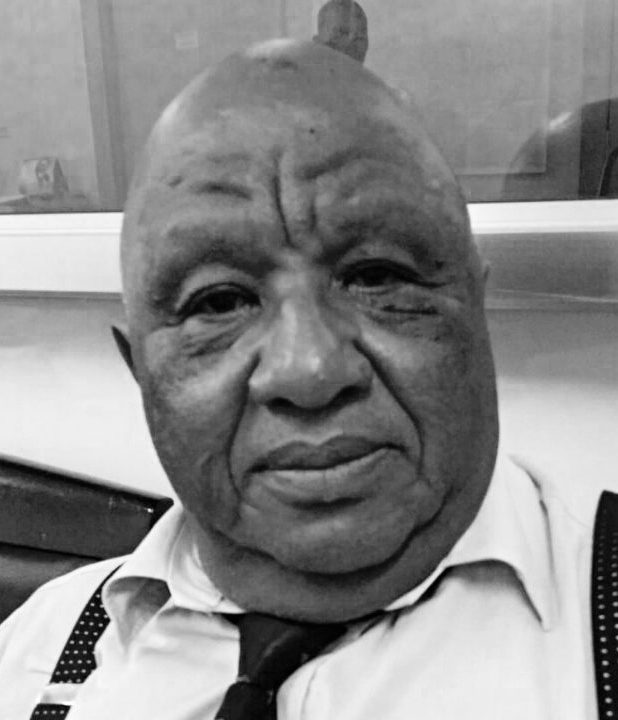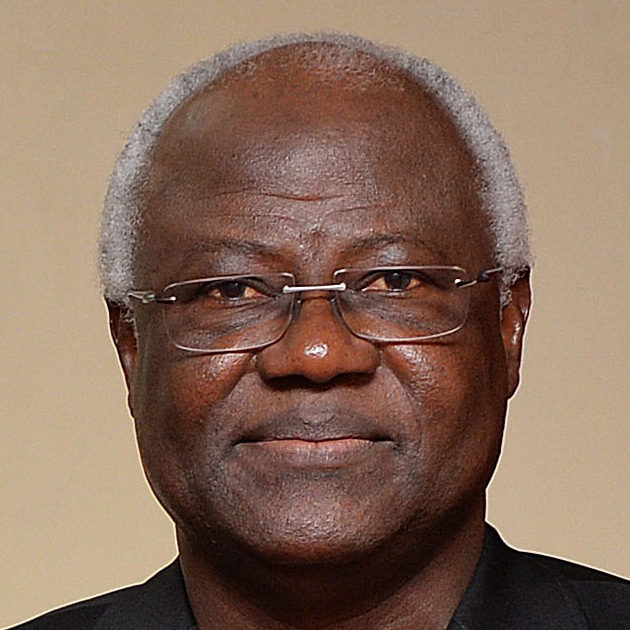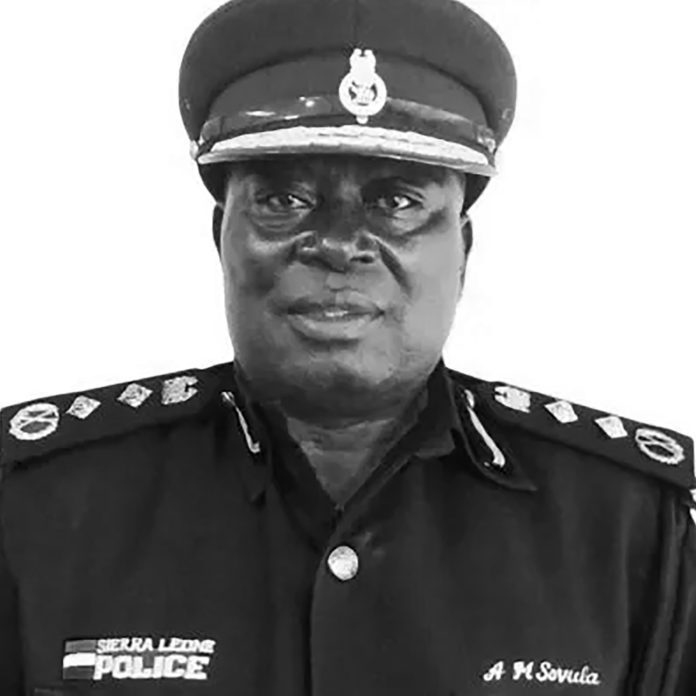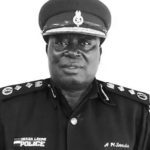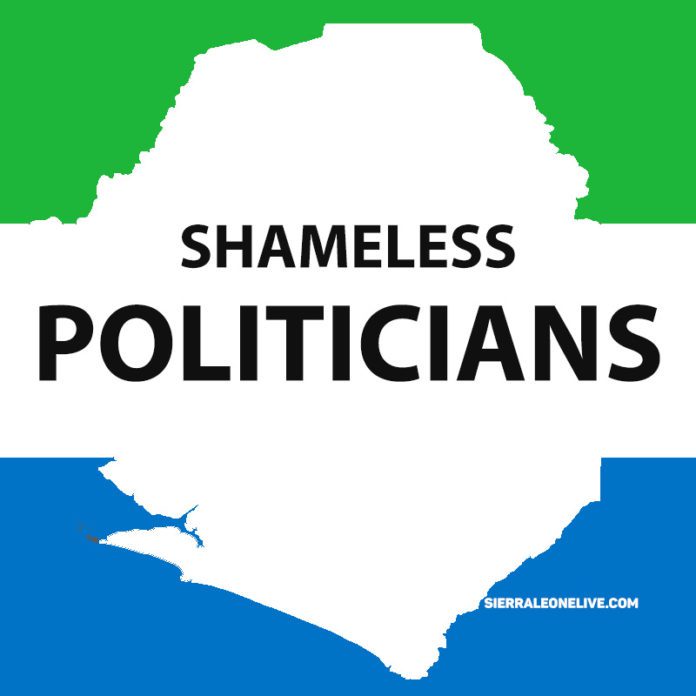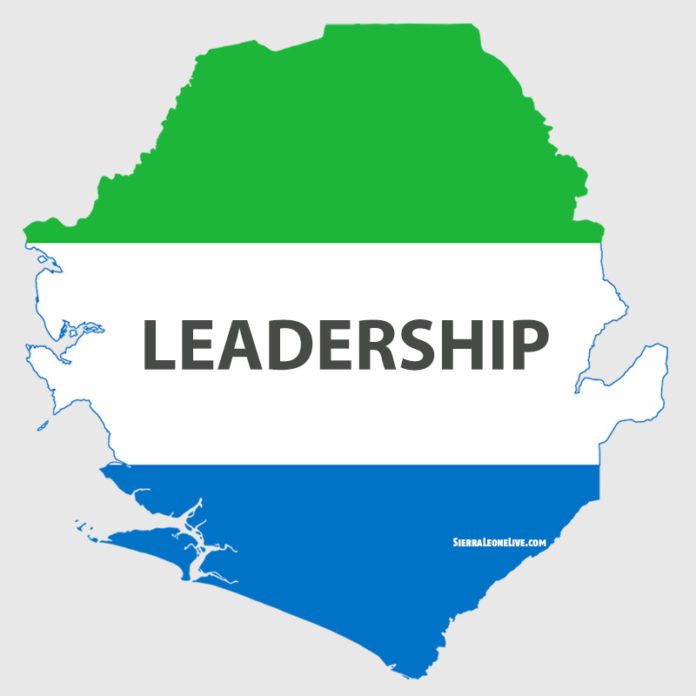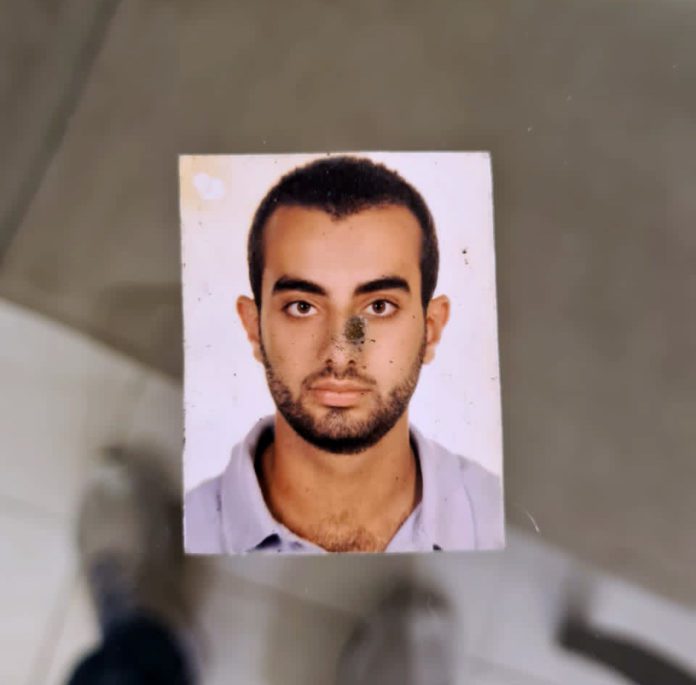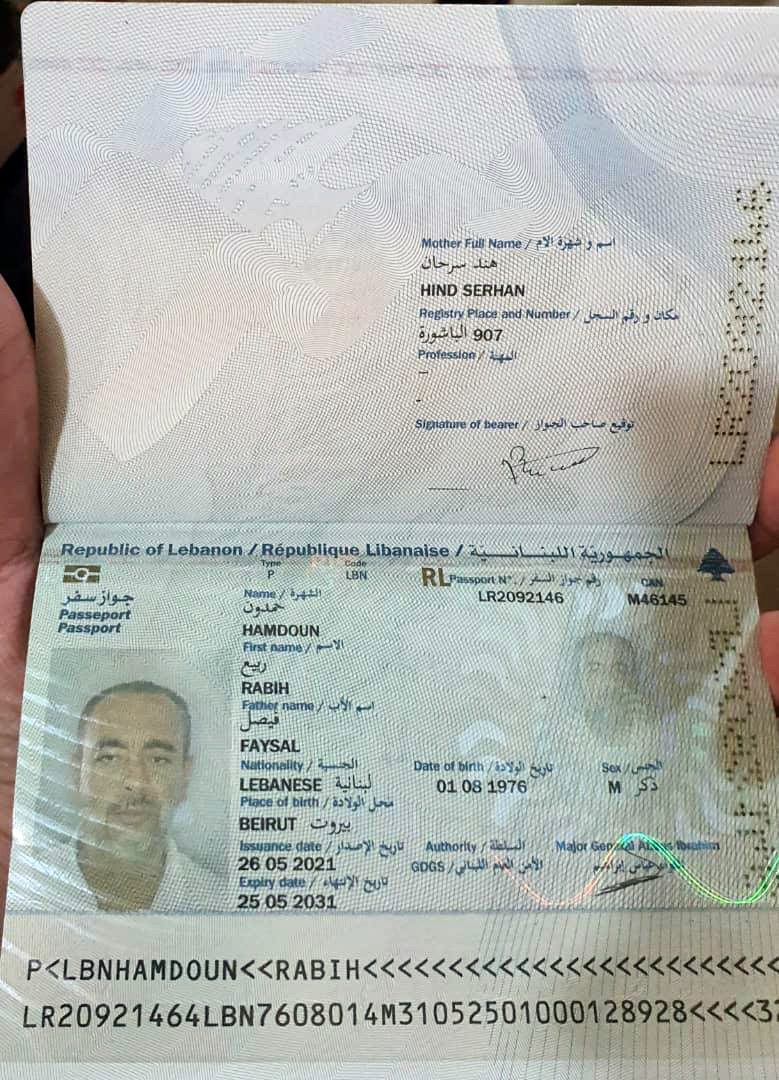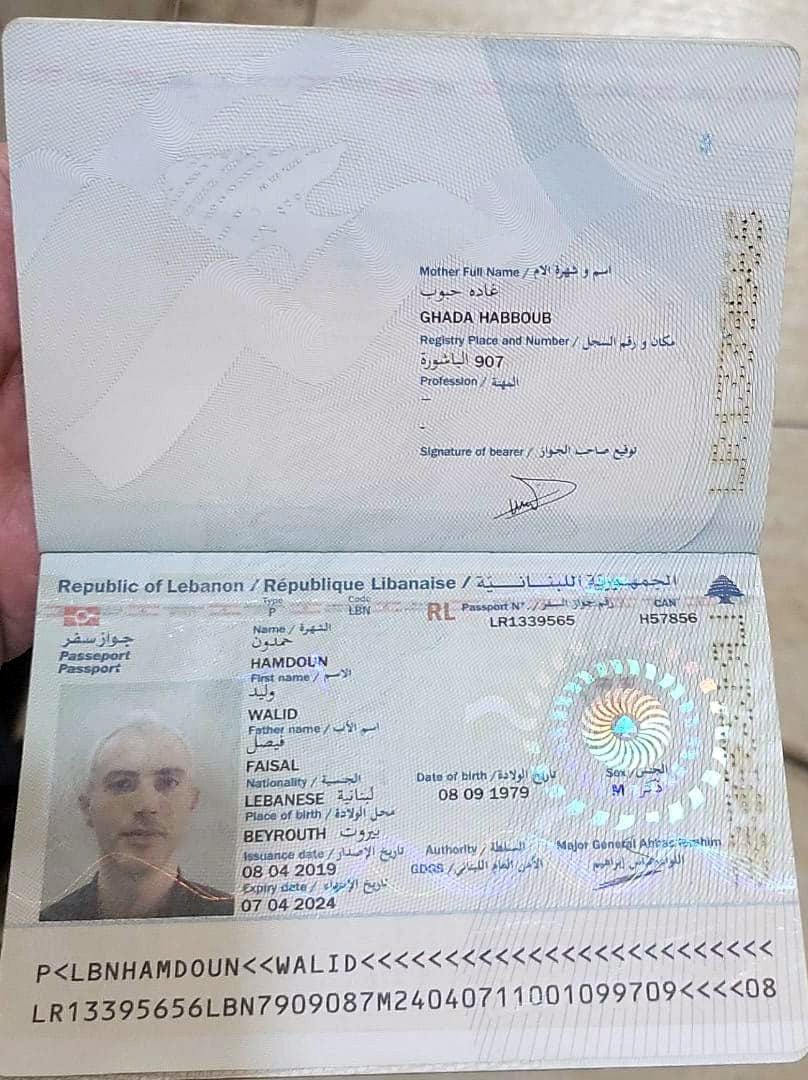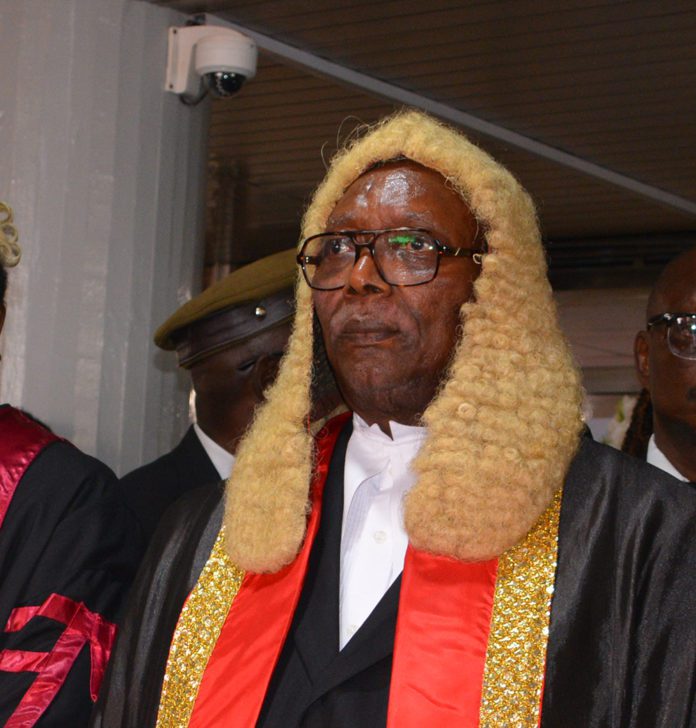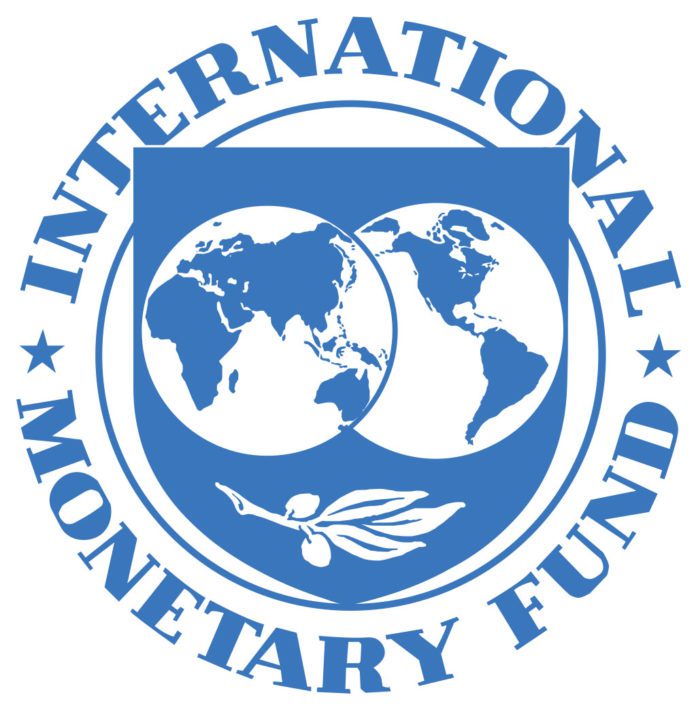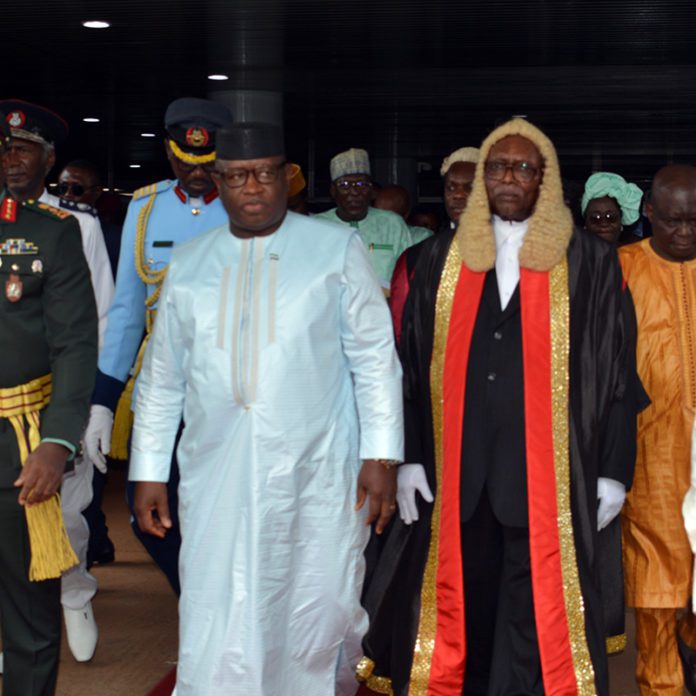31c Leicester,
Western Urban,
Freetown.
11th July 2022.
To The Speaker Of Parliament
Parliament Of Sierra Leone
Towerhill Freetown.
Dear Hon. Speaker Of Parliament,
Re: Request To Expunge Two Sections Provided For The Propositional Representation System (PR System) And The Compulsory National Identification Number As Requirement To Voters In The 2023 Elections In The Current Public Elections Bill 2022 Tabled In Parliament.
Mr Speaker Sir, I bring you season greetings and say Eid Mubarak to you and your family from my board house at Leicester where I have watched many bills in Parliament roll on without the people of this country having the foggiest ideas about the importance, nor the advantages or disadvantages of these bills. Today, I have decided to take up my pen to officially write you as the administrative head of our second arm of government which happens to be The Parliament of Sierra Leone. I want to bring to your attention key reasons why I am urging you as the leader of our legislative house to expunge the two sections in the current Public Elections Bill 2022 that provided for the Proportional Representation System, and National Identification Number as requirements for citizens to Vote in the coming elections.
Mr Speaker Sir, please allow me to draw your attention specifically to our constitution which is the grundnorm of our legal system in Sierra Leone. To start with, let me go directly to the very section that reintroduces the PR system again in our constitution. My Honorable Speaker sir, section 38 (a) was never part of the Constitution of Sierra Leone Act #6 of 1991 until in 2002 when the Former; His Excellency Ahmed Tejan Kabbah (Of Blessed Memory) brought it into our law books through an amendment of our constitution. But what is the intriguing argument about this very section making provision for a PR system? Section 38 (a), if we are to read from its initial drafting, was an insertion to the original Section 38 (1) of our constitution. It was never a section standing on its own but was rather an entrenched clause inserted to fit in for the purpose of elections at a time our country was just coming from war. Let me at this juncture insert section 38 (a) from its original drafters.
- By the insertion immediately after section 38 thereof of the following:—
Election by district block representation system
38A.
Section 38 a (1)
Where, under any law for the time being in force, a date for a general election of Members of Parliament has been appointed but constituencies have not been established in accordance with subsection (3) of section 38 for the purposes of such election, the President may, after consultation with the Electoral Commission, direct that such election shall be conducted on the basis of the existing districts in a manner to be known as the district block representation system instead of constituencies.
Mr Speaker Sir, the said section 38 (a1) sole purpose was for a situation where there are no Constituencies at the time running up to elections. The section itself was not amended to stand on its own and was also not a mandatory provision in our constitution as the ruling government and their MPs may want us to believe. The said section from the words “…the president may” and not “the president shall” simply means, that it is not a matter of the only way out, but can be an option if the circumstances arise. Mr Speaker Sir, if you take into consideration the date such law was made and added to our constitution, you will realize the said law was the best fit at that time, but not in our current situation where there are already existing Constituencies. And I will bet my life on this that had it been the country by then been shared into constituents, the late former president would have never introduced or brought into our constitution such draconian law. Section 38 (a) and all its subsections are in contravention with the rest of other provisions in our constitution that guarantee sustainable democracy and good governance.
Mr Speaker Sir, let’s push a bit further on the following subsections of the same section 38a. Section 38 a subsection 3) continued as follows:
Section 38a (3)
Members of Parliament for the seats won by a political party in a district shall be determined by the Electoral Commission from a list of the candidates of that political party for the district submitted to the Electoral Commission before the date of the election and showing the order of preference of the candidates.
According to this very subsection, there is no way one could argue that the said paragraph has any democratic tendency in itself. Section 38 (a3) in its entirety clearly disenfranchised the people of this country and put political parties over the rights of citizens. How will you reconcile this very Section 38 (a3) to Section 5 (subsection 2) of paragraphs (A, B, and C) which state as follows:
Section 5. (2 A, B, C) It is accordingly declared that—
Section 5 (2a) Sovereignty belongs to the people of Sierra Leone from whom Government through this Constitution derives all it powers, authority and legitimacy;
Section 5 (2b) The security, peace and welfare of the people of Sierra Leone shall be the primary purpose and responsibility of Government, and to this end it shall be the duty of the Armed Forces, the Police, Public Officers and all Security agents to protect and safeguard the people of Sierra Leone; and
Section 5 (c) The participation of the people in the governance of the State shall be ensured in accordance with the provisions of this Constitution.
Mr Speaker, the title itself given to section 5 (Government and the People) is self-explanatory that a Proportional Representation System can only be seen as a bad law incorporated in our constitution. Mr Speaker Sir, kindly note the words “…derives all its powers, authority and legitimacy” If Section 5(2a) of our constitution did not say sovereignty belongs to a political party for government to derive all its powers, authority and legitimacy, why then are we taking this constitutional right to give to political parties against the wishes of the people? Could this be seen as democratic? If the people of this country, according to our constitution, are the custodian of power, authority and legitimacy to choose who they want such power, authority and legitimacy to be given to, let me hasten to say subsection 3 of section 38 (a) for the purpose of democracy and good governance is contradictory to what section 5(2a) is saying and it is void ab initio. Mr Speaker, the words again in subsection 2b are empirical of the fact that those of you in authority that the people have given such authority legitimately must at all-time ensure the security, peace and welfare of us the people of this country. If this is so, to allow anything that will bring unrest to this country or that threatens the peace and stability of this country, those of you in authority will be held, accountable sir. The last and final point that I may kindly draw your attention to again Mr Speaker is the words in Section 5 (c). We as citizens of this country must at all times be allowed to participate in any government activities that are germane to the sustainability of this country. You cannot allow a system that will prevent the people from participating in the life of this country. Kindly note that in this very sub-section of paragraph (c) the word “SHALL” as far as legal interpretation is concerned means mandatory. So, if you are taking a mandatory right from the people to give to a political party, it is my place to remind you, sir, that you are creating a platform for disenfranchisement.
Mr Speaker Sir, from the references made above about the provisions of Section 5 and its following paragraphs, don’t you think this is the best time to expunge such draconian law that disenfranchised the people of this country. Except if we are looking for a repeat of what happens to all of us since 1991, I thrust the people of this country will stand up tall against anything evil that threatens the liveliness of us all. If there is any way democracy allows for an order of preference, as we see for a PR system, why even think of holding elections? Why not select all those affluence people in our communities and districts and tell them to lead us if only leading people has become the idea of the order of preference? Mr Speaker Sir, I don’t want to labour on the dangers of this very section 38a that brought about a system bent on destroying the Democratic ideals of a state. Section 38(a3) itself is “Res ipsa loquitur” on how contradictory it is and a gross violation of people’s power and democratic good governance.
Mr Speaker Sir, I may also want to draw your attention to the constitution of Sierra Leone Act #6 of 1991 again with specific reference to section 77 (K, L, M, N). This very section and the paragraphs mentioned focus on the relationship between a member of Parliament and his political party. To start with, the PR system does not allow for an Independent Candidate to run for any elections. A reintroduction of the PR system already alters the provision made under Section 77(M) provided for independent candidates. Mr Speaker, you would agree with me arguably that in the PR system, considering the provisions of section 77(k, l, m, n) we would lose not only democracy in the well of Parliament, but those members of Parliament will rather work in the interest of their parties that make way for them to Parliament than the people they are supposed to be representing. Mr Speaker Sir, it is not rocket science for us in Sierra Leone that the idea of a political party choosing their leaders instead of the people is clear molestation of the idea of people’s representation. Accountability is totally lost in such a system and the voice of the people will be ignored by those in power. Are we introducing a system that will give few people leading a political party the powers to make choices for others thereby disenfranchising the ordinary citizens of this country and encouraging bribery for those positions? It is an open secret that if we allow political parties to choose those that will be representing the people in Parliament, we are then giving an undue influence to more corruption and state muzzling in Sierra Leone.
Mr Speaker, must I also urge your mind that most of the argument that even members of Parliament supporting the idea of a PR system are putting up is as feeble as most of them have been seeing it. To claim that the reintroduction of a PR system will address the cause of election violence is a clear manifestation of how dishonest some of the representatives we have been sending to Parliament are. One thing that is clear for all of the world is that there is nowhere in the world where elections are not fraught with violence. To say the PR system will address the violence we have been witnessing in previous elections is ridiculously ridiculous. If for bye-elections we have witnessed serious violence, what about when a party now has the responsibility to win a whole district so they can have all the seats in that district? Will this not call for war as every party may want to win all the districts and have all the seats in Parliament? Violence during elections will not stop because we change our electoral laws, it will only stop when we change the message taken to our people in the campaign. If we see politics as a way of bringing national cohesion, then we must be less worried about good electoral laws, which the PR is far from being. We must be worried about good electoral messages that will educate the people on how to vote, why to vote and what they will expect if they voted for parties A, B, or C. We can change the rest of our electoral laws and even the manner of voting, but if we fail to change our campaign messages to our people there will forever be violence.
Mr Speaker, at this juncture, I now turn to the area of compulsory National Identification Number (NIN) intending to be a requirement as per the new Public Elections Bill for citizens to be eligible to vote in the next elections. Mr Speaker Sir, the right for citizens to vote and be voted for is a non-negotiable right enshrined in section 31 of our Constitution of Sierra Leone Act #6 of 1991. The said section also qualifies that which is provided for in section 13 (I) the responsibilities of a citizen. Mr Speaker Sir, what is required of a citizen to be eligible to vote in national elections in Sierra Leone is for such citizen to have reached the age of adulthood and of sound mind. I still could not find where our constitution required the ordinary man who wants to exercise his constitutional right that they need to prove their identity when that is the very work of the Electoral Commission of Sierra Leone during the registration process. For clarity sake on this let me now reference our constitution in the biblical phrase. The constitution of Sierra Leone Act #6 of 1991 in sections 31 and 13(I) respectively provided for the following:
Registration of voters.
Section 31.
- Every citizen of Sierra Leone being eighteen years of age and above and of sound mind shall have the right to Vote, and accordingly shall be entitled to be registered as a voter for the purposes of public elections and referenda.
Duties of the citizen.
Section 13 (I)Every citizen shall—
- participate in and defend all democratic processes and practices;
If there is no such restriction in our constitution for the ordinary man to vote, then why have it on a bill that must conform with the constitution of Sierra Leone. If we actually had wanted all these changes, the first thing we should have done is to amend the national constitution first because Section 171(15) of the constitution of Sierra Leone, provides as follows:
Section 171 subsection (15)
- This Constitution shall be the supreme law of Sierra Leone and any other law found to be inconsistent with any provision of this Constitution shall, to the extent of the inconsistency, be void and of no effect.
Conclusively, it is arguably true that the said Public Elections Bill 2022 contravenes the very national constitution which serves as the supreme law of our country, and if we are to go by the provisions of Section 171(15), the bill itself is void ab initio. Mr Speaker Sir, I also want to remind you that there is an ECOWAS Protocol that guides the process of changing electoral laws in any ECOWAS state to prevent or pervert anything that is germane to conflict or unrest. Mr Speaker, permit me to say, the idea of reintroducing a PR system at this material time will cause more harm than good. In a country with over 75% of illiteracy rate, what time do we have now to do civic education to this seven million population on a system called Proportional Representation? As a patriot and caring citizen who has always been utilizing my section 13 rights in our grundnorm, I will hasten to say, those of you who are in authority must always ensure to administer your stewardship with the foremost thought of country first. A PR system will lead this country into another autocratic rule of the one-party state as seen in the early 70s to late 80s. Let the people’s voices be heard!!!
Respectfully Yours,
Malik Shabbaz
+23276909735
Cc:
The Leader, All People’s Congress Party (APC) In Parliament
The Leader, Sierra Leone People’s Party (SLPP) In Parliament
The Leader, Coalition For Change (C4C) In Parliament
The Leader, National Grand Coalition (NGC) In Parliament
The Chairman, All People’s Congress Party (APC)
The Chairman, Sierra Leone People’s Party (SLPP)
The Chairman, National Grand Coalition (NGC)
The Leader, Consortium Of Progressive Political Parties (COPPP)
The Chief Justice, Judiciary Of Sierra Leone
The Attorney General And Minister Of Justice
The Commissioner, Electoral Commission of Sierra Leone
The Human Right Commission In Sierra Leone
The US Ambassador To Sierra Leone
The EU Ambassador To Sierra Leone
The German High Commissioner In Sierra Leone
The United Nations Resident Coordinator To Sierra Leone
The British High Commissioner In Sierra Leone
The Nigerian High Commission In Sierra Leone
The Gambian High Commission In Sierra Leone
The ECOWAS Parliament
The African Union.


